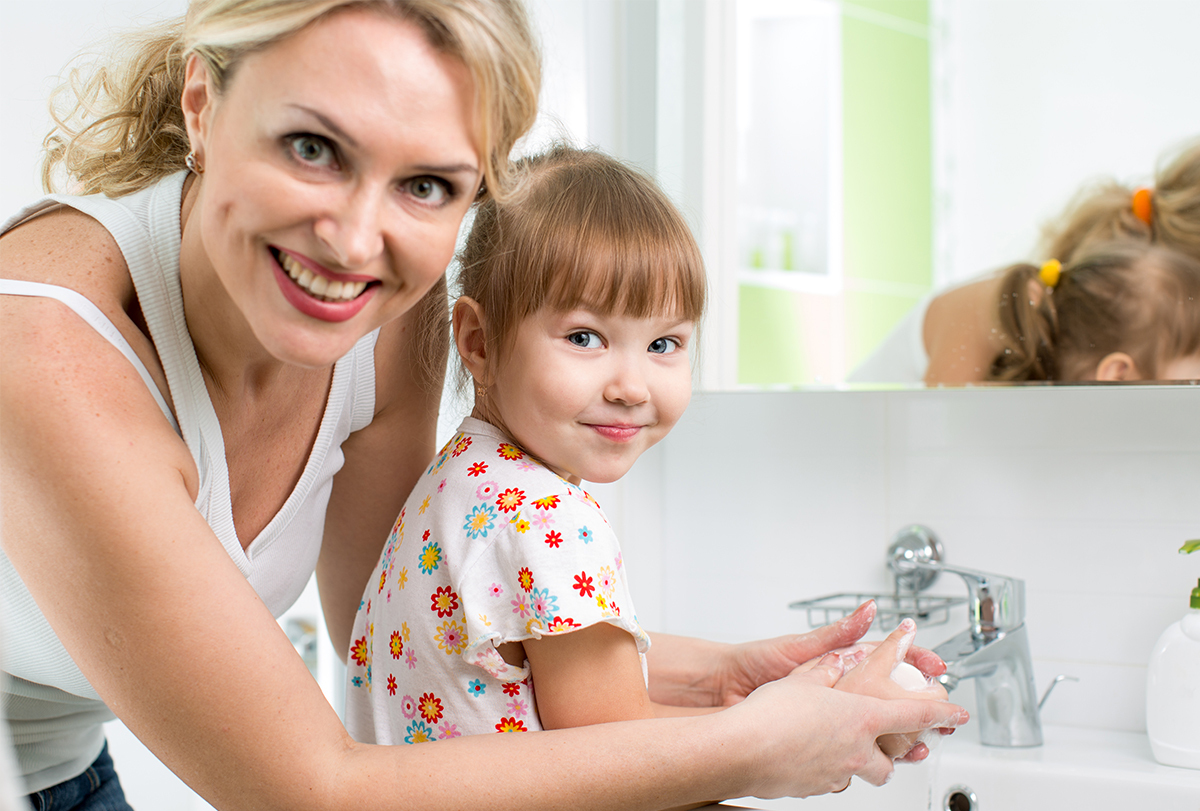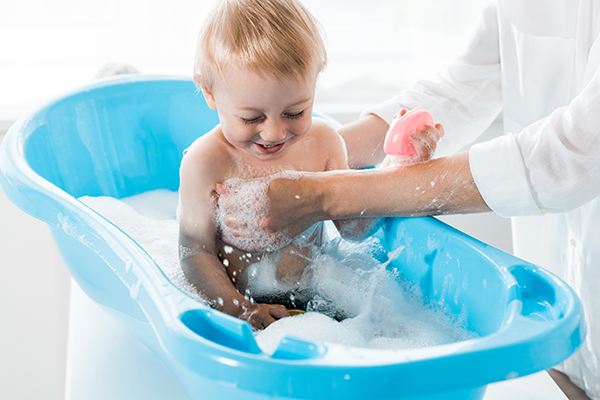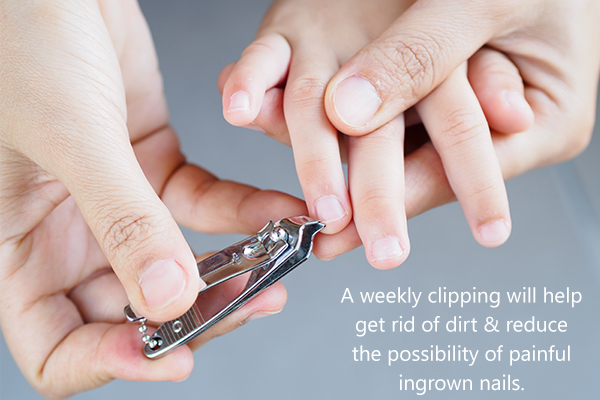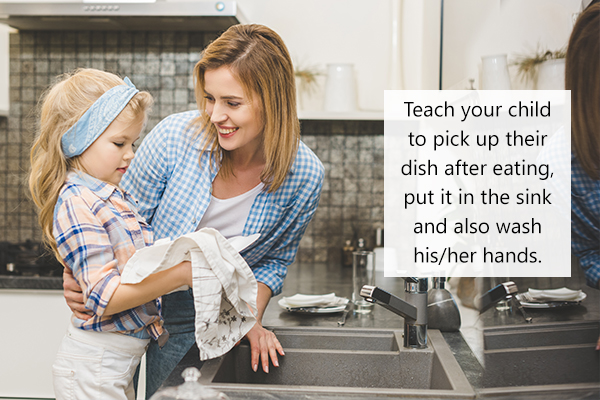In this article:
The pandemic that has changed the world in a few short months is all that is on anyone’s minds these days.

“How can I keep myself and my family safe and practice safe, good hygiene?” These are questions I’m asked frequently during this time as concerned parents and grandparents reach out to me for advice on how to keep their household “pandemic”-free.
Safe and good hygiene is something people need to practice not just now, but always, and to teach children to maintain it throughout their lives. However, with the inclining number of patients affected with COVID-19, now is the perfect time to implement a lifelong routine for your kids.
As a general pediatrician, I have always been asked this question by concerned parents and caretakers – “What are the good hygiene practices I should implement in my child and how?”
Here’s my answer:
1. Regular Hand Washing
I know it seems like common sense, but with the activity level that kids have and their imagination running wild, it’s hard to get them to spend an extra minute on anything else, such as washing their hands.
- A good practice for your child would be to place a small whiteboard with a marker right outside their bathroom door and have your child add a star or any animation after they have washed their hands when using the toilet or once they enter the house from the outdoors. This is a way for you and your child to track their progress in a positive and rewarding manner.
- Place a small hourglass or clock/timer that can track about 15–20 seconds right next to the sink, so every time your child is washing their hands, they know that they need to scrub and clean them for the amount of time shown on the timer.
- Use handwashes instead of soap bars. Handwashing liquid is found to be more beneficial than soap because it has fewer chances of leaving behind pathogens or microbes from previous use. Soap bars may hold microbes that can make people sick because they are often shared with others.
2. Regular Showers and Bath Hygiene

Urge your child to take regular showers or baths daily.
- Morning showers are fine, but the best time for this is right before your child’s bedtime. Kids are always playing around outside, touching dirty surfaces, lying on the floor, running, and sweating. Thus, it’s important to make sure they are clean before they get into their beds. Bedtime baths or showers are important to prevent any spread of germs onto their beds and to ensure they have a clean, hygienic sleeping environment. Make sure your child washes all of their body, including their underarms, genitals, and anal areas, and that their body is thoroughly dry before they get dressed.
- Lots of bacteria and pathogens naturally live on the surface of the skin without causing harm, but they can give rise to infection if they find their way inside the body through an open cut or injury. Children are increasingly prone to scraping or wounding their skin during playtime and can, therefore more likely to develop such infection in the absence of proper cleanliness.
- For children who are too young to communicate their injuries themselves, the parents or caretaker must examine their skin while dressing them to check for any new blemishes, rashes, or abrasions.
3. Dental and Oral Hygiene
According to two of my dentist colleagues, Dr. Maria Mushtaq, BDS, PGR, and Dr. Syed Saud Bin Hamid, MDS, BDS, dental hygiene is crucial for a child’s overall health, growth, and hygiene. They recommend the following measures to achieve the same:
- Have your child establish a proper routine of brushing their teeth twice a day, along with flossing once to two times a day. (1) Start with once-a-day flossing, under supervision, and as your child gets older, increase the frequency to twice a day. Always remind your child to brush and floss until it becomes a normal daily habit for them.
- Have your child brush their teeth after breakfast daily to eliminate the bacteria collected in the mouth overnight and also to remove any buildup after they have eaten their meal.
- See to it that your child brushes their teeth after dinner and before bed as a part of their daily routine.
- Make sure your child brushes for 1–2 minutes with a timer (such as a small clock or hourglass), and the amount of toothpaste they use is less than a pea size to limit excessive fluoride use. (2) Too much fluoride can cause deficiencies and damage teeth enamel in young children. Better yet, use fluoride-free toothpaste.
- The application of fissure sealants to prevent cavities early on is also something you can discuss with your kids’ dentist.
- Make sure to prevent gingivitis and gum disease, and use sippy cups at an early age in place of bottles to prevent darkening of the gums and encourage healthy teeth growth.
4. Genital Care and Maintenance
Washing the underarms and wearing deodorant is a rite of passage many tweens and teens may dislike or ignore. Sweat starts to become body odor at different ages, but it often starts around 9 or 10 years old.
- Talk to your child about the importance of washing their underarms, especially after sports practice, before they change their clothes, or after bathing.
- Depending on how heavily your child sweats, you may want to choose an antiperspirant, not just a deodorant. Deodorant controls bacteria and adds scent, while an antiperspirant also helps to minimize sweating. Not only will it make your child smell good, but it will also help prevent bacteria from entering their bodies via the sweat glands.
5. Nail Care and Cuticle Maintenance

Fingernails are breeding grounds for bacteria. The germs that live under your child’s nails can easily transfer to their eyes, nose, and mouth.
- Invest in a good nail brush and help your child scrub the dirt out from under their nails before bedtime.
- A weekly clipping will help get rid of dirt and reduce the possibility of painful ingrown nails.
- Keeping your child’s nails properly filed also helps prevent undue skin scratches or other injuries.
- Nail hygiene keeps your child from ingesting dirt and germs while eating.
- For children that have the habit of biting their nails, try to control and monitor their behavior.
6. Hair Care and Head Hygiene
Poor hair hygiene in children can cause problems such as dandruff, lice, and scalp infections. Your child can get these from their playmates or other kids in the vicinity.
To avoid this, your child should be taught to take care of their hair and scalp.
- Give your child a hair wash at least twice a week to get rid of any grease and dirt.
- When your child is old enough to wash their hair, supervise or assist them in applying shampoo and rinsing with water.
- If your child has head lice, treat the infestation immediately before it becomes severe, and your child ends up spreading it to others.
- Children with long hair should be encouraged to keep it tied up to avoid picking up dirt and undue hair breakage.
- Teach your child not to share their comb, pillow, hats, or caps with other children, as these are meant strictly for personal use in the interest of better hygiene. (3)
- Make sure your child brushes their hair once a day to prevent knots, breakage, and brittle hair.
7. Covering Their Mouth While Sneezing or Coughing
Children have stronger immunity than adults and are constantly battling different internal infections and fighting the germs around them. However, they have to make sure not to transfer these pathogens to others.
Children should be taught to always cover their mouth and nose when they sneeze or cough to avoid spreading germs into the environment or to others nearby. (4) But it is equally important to teach them the proper way to do this.
- When sneezing or coughing, use a handkerchief or tissue to cover the nose and mouth instead of the hands, which can get contaminated and transfer the infection elsewhere.
- If a handkerchief or tissue is not readily available, use a sleeve or elbow to cover the nose and mouth when sneezing or coughing.
- If the hands were used to cover the nose and mouth during a cough or sneeze, always wash them with soap and water soon after, before touching anything else.
8. Environmental Hygiene

Also, teach your child to follow some hygiene at home, which can gradually become part of your child’s basic etiquette.
- Teach your child to wear clean clothes, including undergarments, every day to maintain overall body and genital hygiene.
- If your child likes a particular piece of clothing, teach them to wear it only when it is clean.
- Inculcate the habit of cleanliness. Teach your child to pick up their dish after eating and put it in the sink and also to wash their hands.
- If your child spills something in the house, teach them to clean it or help them if they are too young to do so.
- Implement clean and healthy eating to prevent gastrointestinal or digestive problems and to build your child’s immunity.
9. Food Hygiene and Healthy Food Choices
Unhealthy eating habits could lead to food poisoning, which causes vomiting, diarrhea, tummy pains, (5) and serious issues such as typhoid, hepatitis A, or cholera. Even respiratory infections and flu often develop due to improper hygiene.
Thus, it is important to maintain hygiene when eating, serving, or preparing food to prevent contracting bacteria and spreading such from one person to another.
- Teach your children about the importance of food hygiene by setting a good example for them to follow. Parents should maintain their own hygiene while handling, preparing, or eating food, and the child will inadvertently learn from the adults in the house.
- Emphasize the importance of well-cooked foods and washing meat, veggies, and fruits properly before consuming them.
- Have your child wear gloves and an apron when helping around in the kitchen or preparing meals to prevent contamination and to maintain a safe meal and eating habits.
- Educate your child about nutritious foods such as fruits, veggies, meat, and vitamins and why they are good for them. This may help the child be more open to trying new things in their diet.
These are just some of the numerous good hygiene tips to inculcate in your child from an early age. Bear in mind, however, that children do and say as they see. Therefore, you must make sure that you are also doing these things regularly before reminding your child, or else they won’t take your instructions seriously.
Final Word
Adopting proper hygiene as your way of life will automatically transfer to your child, as they are constantly witnessing these behaviors and activities in their daily life.
Always remember, learned behaviors usually take time to become a habit. Thus, you need to exercise patience and care when teaching your child about these practices.
Do not punish your child if they forget to follow any of the above-listed practices, but make sure to reward them for the times they do remember. Stay healthy and stay safe.
- Was this article helpful?
- YES, THANKS!NOT REALLY


